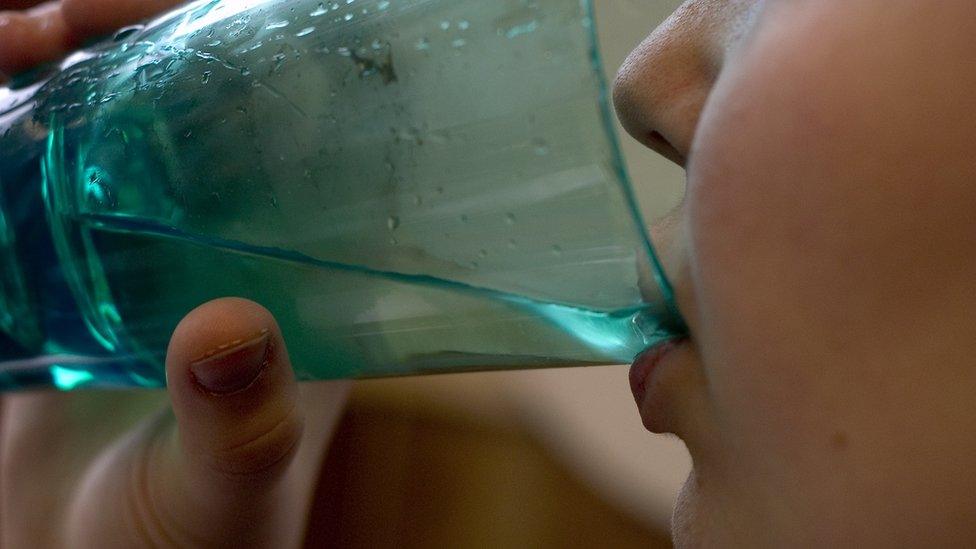Water bill 'too expensive' to flush toilet
- Published
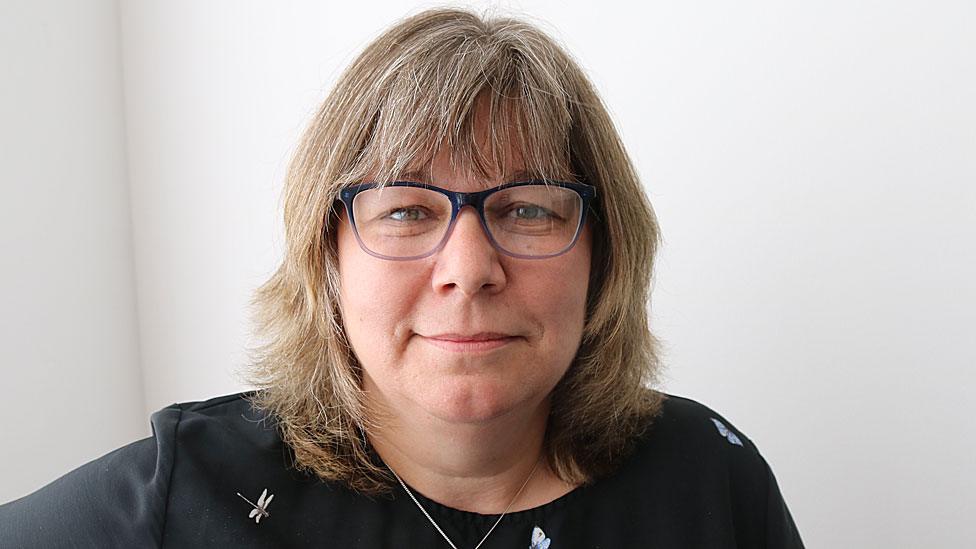
Shirley Widdop says her family has to "ration" the use of water - in a constant worry about bills and debts
A disabled mother from Yorkshire says she is so worried about the cost of water that she sometimes has to miss out on washing or flushing the toilet.
Shirley Widdop, from Keighley, whose bill, based on a water meter, has risen by 35%, says: "It's outrageous and like something from the 1930s."
"We shouldn't have to ration water."
A report on poverty from the Joseph Rowntree Foundation shows that arrears for water bills are now the most common form of debt for the poorest families.
"I am on a water meter and because I'm on a low income I constantly worry about the bill being too high," says the 51-year-old, who lives with two of her children.
She says it's embarrassing but wants to raise awareness for many other people in a similar situation "who can't speak up for themselves".
The Consumer Council for Water, the watchdog for water consumers, says the number of people being put on to reduced rates for water bills, because they are struggling to pay, has risen by 50% in a year, to almost 400,000.
'Basic human right'
Ms Widdop suffers from a disability, degenerative cervical myelopathy, which she says can cause incontinence.
This becomes even more upsetting when she has to worry about the cost of water, when she wants the dignity of being able to "clean herself up".
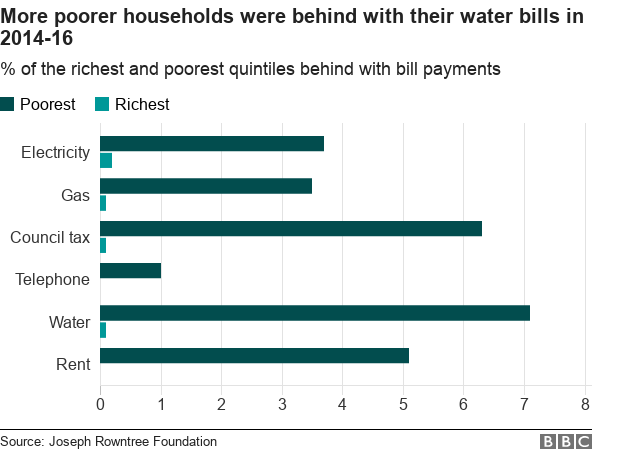
"This is my everyday life. In a decent society, you should be able to wash when you want.
"Access to clean water should be a basic human right," she says.
Her monthly water payments are going up from £21 to £31, which she says makes a big difference for people already on the financial brink.
"Any increase means having to cut back on other things - food or clothing," she says.
Otherwise it means falling behind with bills and the anxiety of "pressure, pressure, pressure from debt".
Monopolies
There is no choice of water company - so she says it means trying to cut down on consumption, such as flushing the toilet less often.
"It's basically a monopoly. Customers aren't first and foremost," she says.
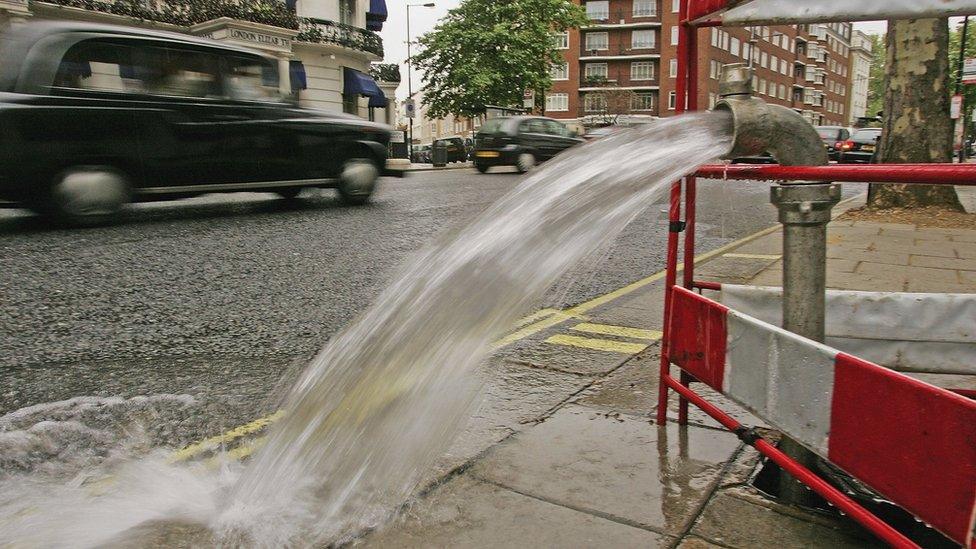
Thames Water faced a fine of £120m this year for poor management of leaks
It could have got much worse, says Ms Widdop.
Last year, her boiler had been leaking into a wall cavity - and the amount of water lost gave her a water bill of £700.
She says her water supplier, Yorkshire Water, showed "goodwill", in writing off £500 of the debt, but she still had to find £200.
"Even £200 is an awful lot of money when you have no money at all," she says.
Most common debts
Problems with paying water bills have become one of the most common forms of debt, says a report from the Joseph Rowntree Foundation, a think tank that addresses tackling poverty in the UK..
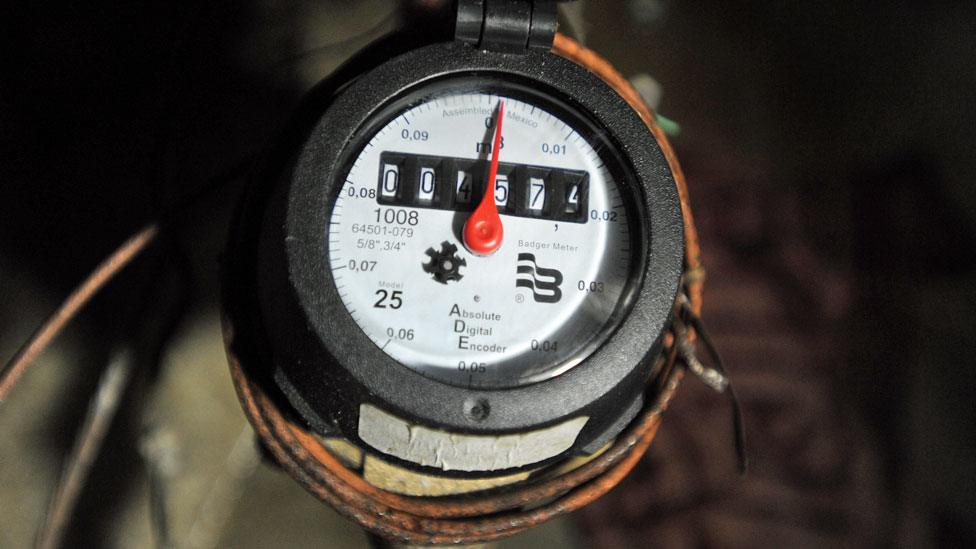
More water bills are being linked to water meters
Figures from the charity show that among the poorest families water bills are now the most common arrears, ahead of council tax, rent or gas or electricity bills.
The UK Poverty 2018 report has also highlighted the growing problem of children growing up in poverty in working families.
There are 14.3 million people of all ages living in poverty
Of these, eight million are in working families
The report blames "parents stuck in low-paid work with little progression"
Rising costs, including private rent, leave families with less money for other essentials
Price controls
Water bills are a growing part of the problem, with the Consumer Council for Water saying up to three million people could be struggling - as well as the 400,000 on reduced "social tariffs".
Each water company has a limit set on its charges by the Ofwat regulator - set at an average level across the region where it provides water.
But below this average, individual customers can face changes in their bills - and those paying bills will also have to cover the cost of the rising numbers on reduced tariffs, which might be paying at half the full price.
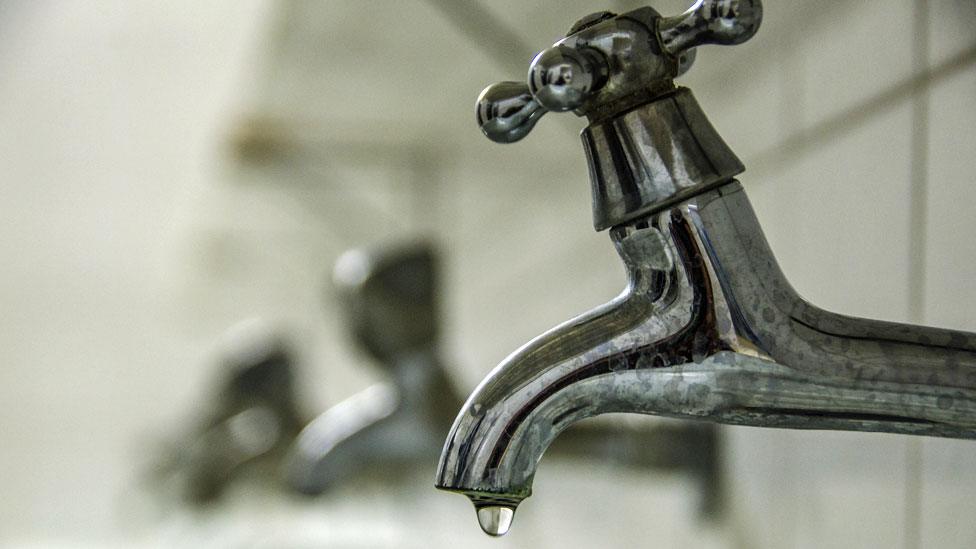
There has been a 50% increase in customers being put on to reduced tariffs
The move to water meters, which is meant to link cost to consumption, can also mean changes in individual bills, if consumption rises or is higher than expected.
Ofwat is negotiating with water companies on how much they will be able to charge in the next round of contracts from 2020.
A spokesman said it would reduce costs for consumers by £15 to £20. in real terms, between 2020 and 2025.
"As a vital public service, it is essential that water is affordable for everyone. Where customers are struggling to pay their bills, we'd expect water companies to be able to identify those who need extra help and ensure that they receive it," said an Ofwat spokesman.
In the case of Shirley Widdop, her local supplier, Yorkshire Water, says her bill has gone up because "the consumption has actually been a little higher than we thought".
Although, the spokesman said it remained below average.
"We will be introducing a new policy which would see us review customer accounts every year and Ms Widdop may be able to benefit from this," said the spokesman for Yorkshire Water.
"We offer financial help to those who are struggling to pay their water bill and we also work with credit reference agencies to identify those who are likely to fall into debt and highlight our support schemes to them."

Help and advice
If you owe money to a water company and are struggling to pay, call them. Contact details should be on your bill
You're not alone - the company will have a code of practice for handling situations like yours
When you speak, try to agree a plan for paying, based on what you can afford
While a water company can't, by law, disconnect your water supply, it can take you to court to recover the money it is owed
In Scotland, those not on a water meter are billed by local council and even those on full council tax reduction must still pay some water charge
Source and more information: Citizens Advice, external / Citizens Advice Scotland, external

- Published22 February 2018
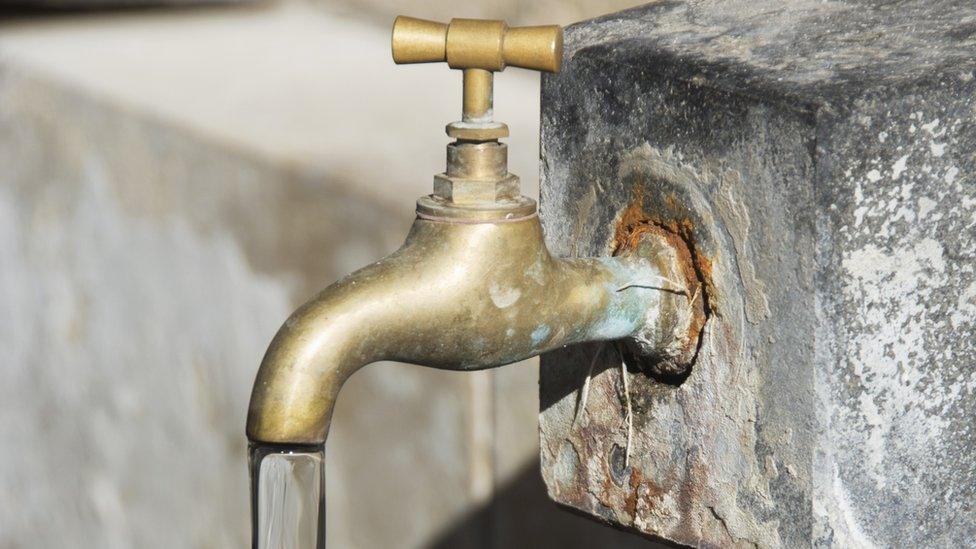
- Published7 June 2018
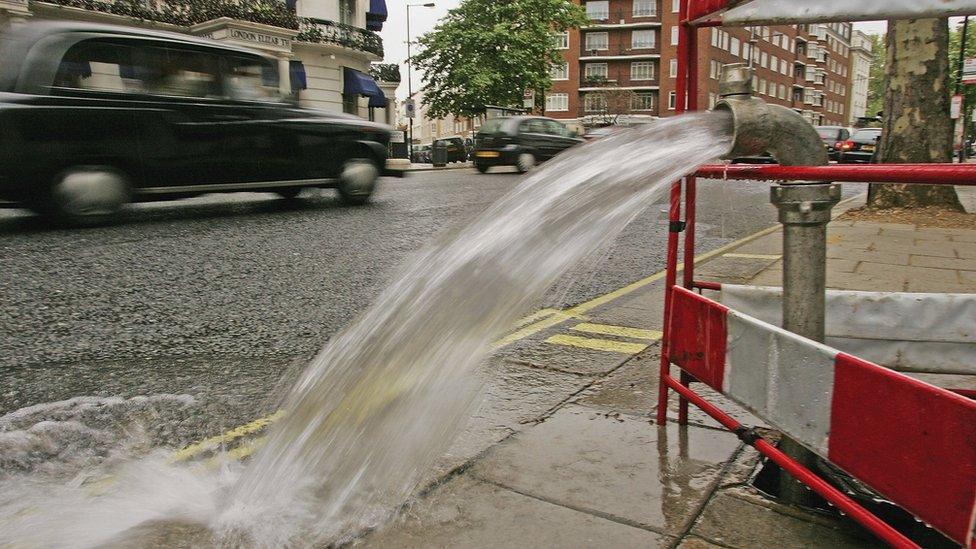
- Published8 June 2018
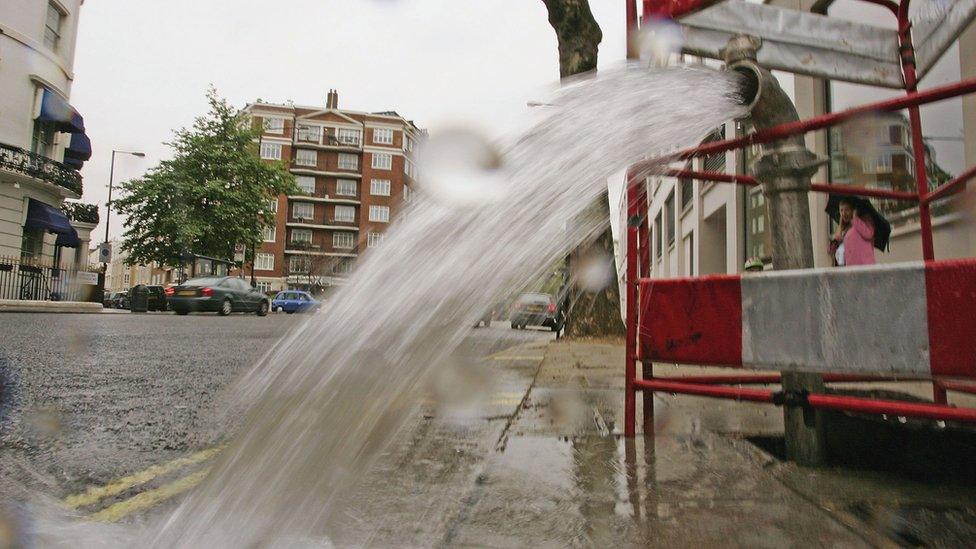
- Published16 June 2018

- Published1 March 2018
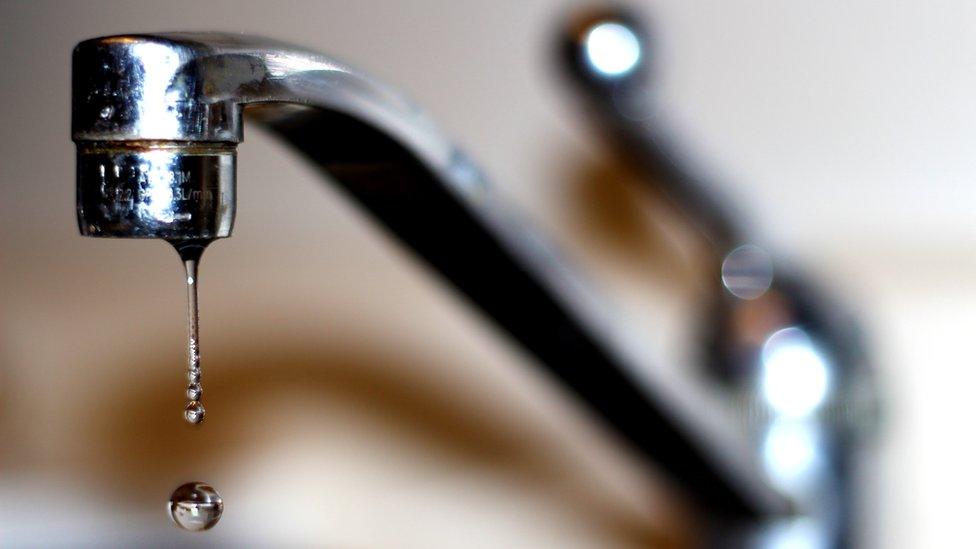
- Published3 September 2018
